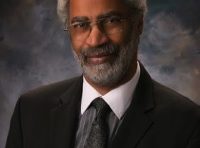In Search of Civility
- Share
- Tweet
- Pin
- Share
I have heard that the Civility Project is not the civility police. I don’t want to come off as the civility police either. However, I recently felt a need to speak up about comments I thought were unfair and uncivil – and I didn’t do so. Now I’m feeling like I didn’t do enough to positively support the situation. At a recent listening session for a local governmental body, a few individuals in the room frequently shouted out negative remarks when others were speaking. It certainly made me uncomfortable, and some others in attendance appeared frustrated. I don’t want to be a passive bystander. I really appreciate the listening sessions and want them to continue.
Truth be told, my initial reaction to your dilemma was to recommend a bouncer or at least a sergeant-at-arms (civility police?) to “handle” the citizens who kept shouting out uncivil remarks when others were speaking during a listening session. As you stated, it is uncomfortable and frustrating, at the very least, when people threaten a process – such as a listening session – designed to enhance citizen participation in government. Thus, the knee-jerk reaction for many of us is to just silence the troublemaker.
Unfortunately, silencing the troublemaker is not the solution to uncivil behavior during listening sessions or any public meetings. Squelching free speech is anathema to democracy. But in a civil society, our right to free speech requires expressing our ideas and beliefs without degrading someone else’s in the process. Otherwise debate degenerates into a useless free-for-all. Listening sessions and all open public meetings need both free speech and civility. Civil discourse and behavior are basic preconditions to any meaningful exchange of ideas.
The solution lies with the expectation that the elected or appointed leadership will create an environment of order and civility in which to effectively conduct business. With all due respect, it is not enough for our elected and appointed leaders to create policy and make decisions. They must also know how to conduct open meetings. And doing that is not easy when fierce and firmly held opinions and beliefs are at stake.
For the local governmental body you are referring to, I can think of no better way to equip them with the tools they need than to avail them of the resources of the Door County Civility Project (DCCP).
These resources include DCCP members who share their skills at conducting open meetings and forums. They also conduct “Speak Your Peace” training programs that are tailored to specific group needs. Posters that illustrate the nine tools of civility are readily available for display.
By studying and signing the civility pledge, a governmental body publicly makes the commitment to practice the core principles of civility. Among the positive outcomes, creating a culture of civility at the listening sessions will provide a foundation for dealing with those persons who would try to hijack sessions for their own personal gripes or vendettas.
Do not kick yourself for not speaking up during the listening session. I’m not sure what could have been accomplished in the moment. But you can act now. Gather information and take it to the leadership of the governmental group that held the listening session. Insist on follow-up. Then, you are not a passive bystander.
For more information, visit doorcountycivilityproject.org, or find the Door County Civility Project on Facebook and Twitter.

